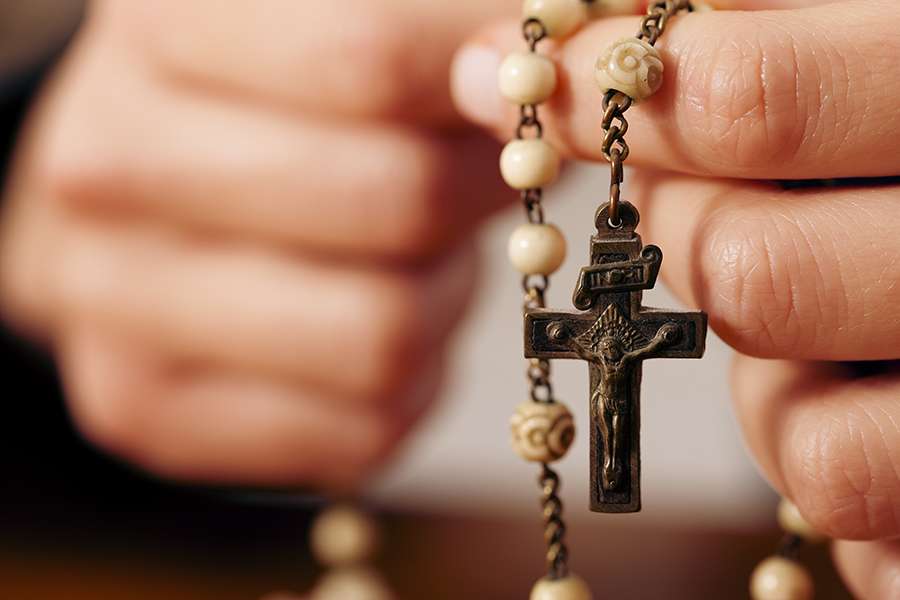
Spiritual Life
Trust and obedience are vital parts of prayer
March 19, 2020
We have been going through Part Four of the Catechism of the Catholic Church on “Christian Prayer.” In today’s column, we consider prayer in the Old Testament and how that relates to us.
The Catechism says, “Prayer is bound up with human history, for it is the relationship with God in historical events” (no. 2568). How can we keep in contact with God, no matter what happens? Through prayer. How can we make every event, including the coronavirus scare, into a means of further conversion? Through prayer. How can we change the world for the better? Through prayer. Prayer is integral to every event in salvation history.
As we have noted, Adam and Eve “walked with God” in the Garden of Eden. The Catechism tells us that Noah and Enoch are likewise men who walked with God, even though they lived after the Fall. People in all cultures and times can walk with God as they did, by having a heart that is “upright and undivided” (no. 2569).
Abraham also walked with God. He literally journeyed from his homeland, because God asked him to. “Abraham’s heart is entirely submissive to the Word and so he obeys. Such attentiveness of the heart, whose decisions are made according to God’s will, is essential to prayer, while the words used count only in relation to it. Abraham’s prayer is expressed first by deeds” (no. 2570).
We often think about prayer as “talking to God.” In fact, this column is called “Conversation with God.” Abraham’s first example of prayer is not in words, however, but in action. We have to be careful, however, to keep the balance here. Later, when we look at prayer in the New Testament, we will discuss the story of Mary and Martha, in which Jesus calls prayer “the better part” as compared to action (Lk 10:42). We cannot replace prayer with action. We cannot make good deeds a substitute for prayer.
How did Abraham avoid this? His action was a response to the word of God. God called him to act and he did so. Abraham reaffirms what we discussed in the last column: Prayer starts with God, rather than with us. Prayer starts with listening to God’s word. When we respond in faith to God’s word, we make the communication go in both directions. Prayer becomes conversation, rather than a monologue.
God speaks to Abraham many times throughout his life. Each time, Abraham responds with obedience. As his relationship with God grows, Abraham is challenged to greater sacrifice. “Thus one aspect of the drama of prayer appears from the beginning: the test of faith in the fidelity of God” (CCC, no. 2570).
Eventually, God asks Abraham to sacrifice his beloved son Isaac, the one whom God had promised him. Having practiced listening to God’s word and responding to it, Abraham is ready to obey. He trusts that somehow his son will be restored to him. “And so the father of believers is conformed to the likeness of the Father who will not spare his own Son but will deliver him up for us all. Prayer restores man to God’s likeness and enables him to share in the power of God’s love that saves the multitude” (no. 2572).
Abraham’s prayer shows us that trust and obedience are a vital part of prayer. Prayer can restore us to the intimacy with God that Adam and Eve lost, but only if we are willing to be tried and to remain faithful. “Blessed are those who hear the word of God and keep it” (Lk 11:28).
Connie Rossini is a member of St. Peter Parish in Omaha. She is the author of “The Q&A Guide to Mental Prayer,” now available at amazon.com, and five other books on Catholic spirituality.